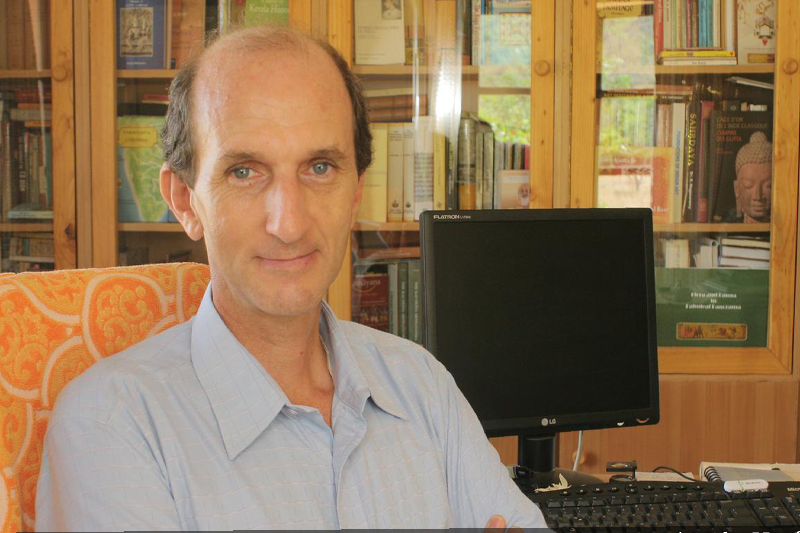
Michel Danino, NCERT, and the Politics of History: A Scholar’s Journey from Auroville to Curriculum Reform
French-born Indian scholar Michel Danino, currently heading the NCERT panel on social science textbooks, has found himself once again at the center of an ongoing national debate. As textbooks under his panel’s leadership have come under fire for their portrayal of Indian history — particularly the Mughal era, Tipu Sultan, and the Maratha empire — Danino has responded with clarity, emphasizing that the new content is not driven by ideology, but by the goal of representative, impactful education within a constrained format.
Rejecting Charges of Communal Bias
Criticism of the latest NCERT social science books ranges from claims of “communalisation of education” to omission of key historical figures and regional resistance movements. These include:
- A negative portrayal of the Mughal and Delhi Sultanate periods.
- The omission of Tipu Sultan and the Anglo-Mysore wars.
- A map showing an expanded Maratha empire, including parts of present-day Rajasthan.
In response, Danino — a Padma Shri awardee and guest professor at IIT Gandhinagar — defends the panel’s decisions, stating:
“Criticism is welcome… but the strident criticism that this is communalisation of education… or sometimes people say my clan, my hero is missing… that’s not acceptable. We take representative figures, and try to select them in a way that bears significance across India.”
From the Margins of Academia to Mainstream Influence
Michel Danino’s rise to influence in Indian academic and educational policy is anything but conventional.
- Born and educated in France, Danino studied mathematics, physics, and engineering, but turned to Indian spirituality in the early 1970s.
- He was deeply inspired by Sri Aurobindo and Mirra Alfassa (The Mother), founders of Auroville — a spiritual township in Pondicherry.
- In 1977, he moved to Auroville and decided to spend his life in India, translating, editing, and publishing works related to Sri Aurobindo and The Mother.
It was Aurobindo’s vision of human unity and deep civilisational thought that pulled Danino toward a scholarly interest in India’s ancient past. From “cursory readings” he evolved into a serious researcher and speaker, engaging with controversial topics like the Sarasvati river and the Aryan invasion theory, both of which he challenges in his work.
Building Academic Foundations in India
Despite being once “on the margins of academia,” Danino gradually gained recognition:
- Delivered lecture series at IIT Kanpur, eventually becoming scholar-in-residence.
- In 2011, invited by Professor Sudhir Jain, he joined IIT Gandhinagar as a guest professor.
- Helped establish the Archaeological Sciences Centre and led courses on Indian Knowledge Systems and Perspectives on Indian Civilisation.
His work aligns closely with the National Education Policy (NEP) 2020, which calls for integrated and culturally rooted education — one reason he was tapped to lead the NCERT social science panel.
A New Curriculum Under NEP 2020
Danino emphasizes that the NCERT textbook changes are not ideologically driven but stem from structural reforms introduced by NEP 2020 and the National Curriculum Framework for School Education (2023).
Key changes include:
- A single social science textbook, rather than separate books for history, geography, and political science.
- Limited space to cover vast content, requiring a prioritization of core topics that have lasting educational impact.
“We try to focus on what is important that we would like our students to remember, if possible, all their life,” he said.
Controversies Are Not New for Danino
Danino has long courted controversy in academic circles, especially for:
- Rejecting the Aryan Invasion Theory
- Advocating for the idea of an Indus-Sarasvati civilisation, referring to Sarasvati as a “life-giving river”
During a lecture at Azim Premji University in October 2024, he even said:
“We should not shun controversies, we should desire them. We should make use of them to go deeper into issues.”
His willingness to engage with historical debates — rather than avoid them — sets him apart in the academic landscape, though it has also drawn sharp criticism from detractors who accuse him of pushing a Hindutva-leaning narrative. Danino firmly denies this:
“The least genuine criticism is we are writing under the gaze of ideological movements like RSS. This is completely false… People are not willing to believe that because it’s a convenient argument to dismiss the whole effort without seriously looking at it.”
Textbooks Not Perfect, But a First Step
Danino is also candid about the imperfections in the new textbooks, acknowledging that:
- The books were created under tight deadlines.
- They are not final, and will require regular revisions.
“We have not said that the textbooks are perfect. How can they be? It’s the first attempt and done in a short time. They have to be revised and looked at afresh from year to year.”
He even told his team during the process that his goal was to receive equal brickbats from both ends of the ideological spectrum, suggesting that balance — not bias — was the panel’s objective.
Conclusion: A Global Mind in an Indian Debate
Michel Danino’s journey from a French student of science to an influential scholar of Indian civilisation and educational reformer reflects a unique blend of personal conviction, academic rigor, and public resilience.
His leadership of the NCERT textbook panel under NEP 2020 marks a significant shift in how India may choose to tell its own story to its youth — and while critics and supporters alike weigh in, Danino remains clear on one thing:
“What we focus on is what is important, what can serve students for a lifetime — not ideological battles.”
As India navigates how to balance its diverse histories within a national curriculum, Danino’s role — and the larger academic response — will likely continue to shape the future of history education in India.


